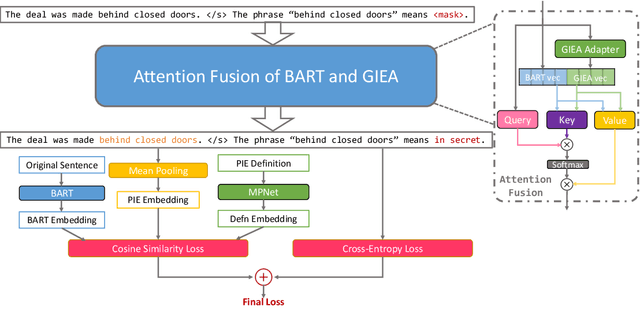Unified Representation for Non-compositional and Compositional Expressions
Paper and Code
Oct 29, 2023



Accurate processing of non-compositional language relies on generating good representations for such expressions. In this work, we study the representation of language non-compositionality by proposing a language model, PIER, that builds on BART and can create semantically meaningful and contextually appropriate representations for English potentially idiomatic expressions (PIEs). PIEs are characterized by their non-compositionality and contextual ambiguity in their literal and idiomatic interpretations. Via intrinsic evaluation on embedding quality and extrinsic evaluation on PIE processing and NLU tasks, we show that representations generated by PIER result in 33% higher homogeneity score for embedding clustering than BART, whereas 3.12% and 3.29% gains in accuracy and sequence accuracy for PIE sense classification and span detection compared to the state-of-the-art IE representation model, GIEA. These gains are achieved without sacrificing PIER's performance on NLU tasks (+/- 1% accuracy) compared to BART.
 Add to Chrome
Add to Chrome Add to Firefox
Add to Firefox Add to Edge
Add to Edge